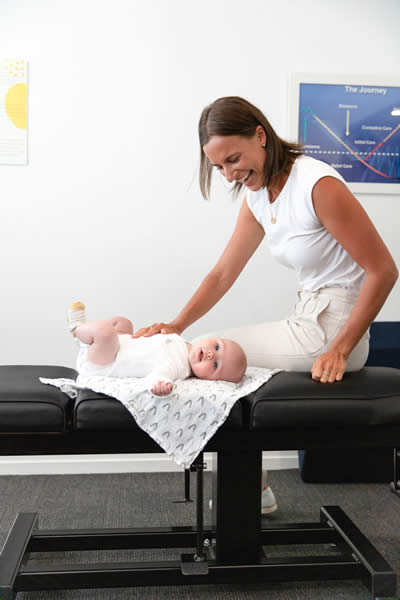There was a lot of talk of RSV (Respiratory Synctial Virus) last winter. There was a warning that RSV was on the increase here in NZ. In actual fact most children will have had at least four exposures to RSV before the age of two years. It is a very common virus that the body is very readily exposed to, especially in spring and winter here in NZ. This may be due to more inside activity over winter, lack of movement and less vitamin D exposure. Due to lockdowns and increased stress this may have also accounted for an increase incidence of sickness caused by RSV. For the most part it causes mild respiratory symptoms. However, for some infants or those who are immunocompromised it can develop into bronchitis, bronchiolitis or pneumonia.
Like all viruses and pathogens, RSV can enter your child’s body through someone sneezing or coughing, physical touch from dirty hands or surfaces, and so forth. But what happens next when that virus gets into the body? Is your child’s respiratory and immune system prepared enough to fight it off and get rid of it, or is it sure to cause an infection every time?
Why is it that some kids can be exposed to viruses and germs all the time in the home, daycare, or school and not ever get sick… and some kids get sick at the mere mention of a virus? Is it truly just good luck or bad luck based on genetics? No, there is so much more to this story, parents, and you deserve to know it all.
Seed or Soil? Which Matters Most?
Most parents are led to believe that germs, viruses, and bacteria alone are what cause illness (the “seed”), there is so much more to it.
While yes, it’s true that, especially for infants and young children, their immune, digestive, and nervous systems are still developing and maturing, it’s not as if they have no defense at all.
In the metaphorical question posed above, the soil is the child’s internal defense system – which is made up primarily of four (4) major individual systems that all work together to keep us healthy. Those key systems are:
- The Nervous System
- The Respiratory System
- The Immune System
- The Digestive System (Gut)
We list the nervous system first there very intentionally, as what we know today is that it’s the nervous system’s job to control, regulate, and modulate all of those other systems (and many others as well). Therefore if a child’s nervous system is stressed and not functioning properly, a condition known as dysautonomia, then the other three key systems are compromised and can start to experience dysfunction in the following ways:
- Decreased respiratory motility or movement – not being able to keep viruses like RSV from moving through and getting cleared out of the nose, throat, airway, or lungs
- Decreased immune responsiveness and increased or excessive mucus production, inflammatory response, and more
- Decreased digestive motility or movement – working just like the respiratory system, where not viruses and germs can’t be eliminated and removed from the body efficiently
When you’re looking to keep your child healthy or restore their health when sick, always be sure to look at the nervous system first. If it’s overly stressed and out of balance or subluxated, it’s likely those other key systems will struggle as well.
So who is most at risk for RSV?
- Premature infants
- Children who experienced birth intervention and trauma (forceps, vacuum, induction, c-section, etc.)
- Very young infants (6 months and younger)
- Children younger than 2 years old with chronic lung disease or congenital (present from birth) heart disease
- Children with weakened immune systems
- Children who have neurological or neuromuscular disorders, including those with difficulty swallowing or clearing mucus secretions
How to Care for RSV?
There is no specific medical treatment for RSV; commonly used drugs like steroids and antibiotics do not help with an RSV infection.
What you can do, however, is help your child be as comfortable as possible and then look to strengthen the function of their neuro-immune system, improve drainage and movement of mucus and congestion out of the body, and encourage rest as much as possible. Doing so could look the following things:
- Using a nasal saline or gentle suctioning
- Using a cool-mist humidifier
- Encouraging additional rest and sleep
- Encouraging frequent feedings and fluids (staying hydrated is absolutely key)
- Adding in healthy foods and adding in immune-boosting, pathogen-fighting vitamins, supplements, herbs, and essential oils (“Nature’s Medicine Cabinet”)
- Getting your child under chiropractic care or adding a “boost” adjustment if they already are
 While that last bullet point is something as easily or commonly found on a shelf at your local pharmacy or health food store, it’s the one that was an absolute game-changer for many millions of children who are under regular chiropractic care.
While that last bullet point is something as easily or commonly found on a shelf at your local pharmacy or health food store, it’s the one that was an absolute game-changer for many millions of children who are under regular chiropractic care.
The adjustments can not only remove those stuck, trouble-causing subluxations in the short term, but they can also handle dysautonomia and more long-standing neurological challenges that may be underlying the frequent colds, congestion, and respiratory infections.
The most important thing to focus on with RSV is prevention. If your child is very young or has the added risk factors listed above, such as premature birth, extended NICU stay, birth trauma, or frequent use of antibiotics and steroids, then be sure to follow the proactive + resilience-building steps listed in the last section as best you can!
For far too long, parents have been told the best prevention they have is to frequently wash their hands, kill every germ they can in the household, and avoid family and friends each and every winter, that’s not the kind of life that will lead to any sort of true health and happiness for you or your child.
Instead, take this all head-on! In addition to having an incredible, integrative + holistic-minded pediatrician, ensure you’ve got a trained and experienced Chiropractor on your family’s healthcare team.
Not only will they be able to make those incredible adjustments and provide neurologically-focused, drug-free care for your child and family, but they can help guide you into all the additional ways you can use natural, resilience-building health and wellness strategies in your day-to-day life!
Again and again, we find that when so many other kids get sick and stressed, our “chiro kids” stay strong, stay healthy, and don’t miss a beat!
Brind’Amour, K. Ph.D., MS. “Relieve Your Child’s Bronchiolitis Symptoms 7 Natural Ways” Dr. Axe. January 28, 2018

